- Thursday, 8 January 2026
Breakfast Amidst Wilderness
We were savouring the sundowner on the banks of the Rapti River across the Chitwan National Park (CNP) in Meghauli when the Barahi Jungle Lodge's relationship manager informed us that the breakfast of the next day would be inside the park itself. While many tourists had this on their itinerary, none of us truly grasped the thrill until we reached the riverbank. A breakfast inside CNP, a UNESCO World Heritage Site and home to the famed one-horned rhinos, promised an unforgettable experience.
The sundowner is an absolutely new concept to entertain the tourists as they reach Meghauli, a newfound tourist area where luxury resorts and hotels are sprouting quite recently and gaining popularity among the high-end tourists from Nepal and abroad. It is also popularly known as Sauraha (a tourist town in Chitwan, which happens to be one of the top tourist destinations in Nepal) in the west. It is one of the few entry points to the CNP and has an additional attraction in the form of the confluence of the two rivers—Narayani and Rapti. Barahi served drinks and snacks, including some local cuisine of the area and the Tharu community, which offered a new gastronomic experience to the tourists, including the Nepali ones. The tourists are taken to the venue at a distance of more than three kilometres in wooden boats, each of which are accompanied by a naturalist.
The naturalist introduces the new plants, animals, birds, or insects to the visitors. Many of us were excited when Jitaram Chaudhary, 60, a naturalist who was with us in the boat and safari jeep the next day, showed us a flock of Ruddy Shelduck (commonly known as Chakhewa/Chakhewi in Nepal and portrayed in literature as the symbol of love and union) that travelled to Chitwan all the way from Russia during the winter. He also identified various plants and trees on the banks of the river, deer and monkeys in the CNP. The beautiful scenes, animals, plants, birds, and fun at the CNP wouldn't end there, as the fun was to be augmented with the breakfast in the wild.
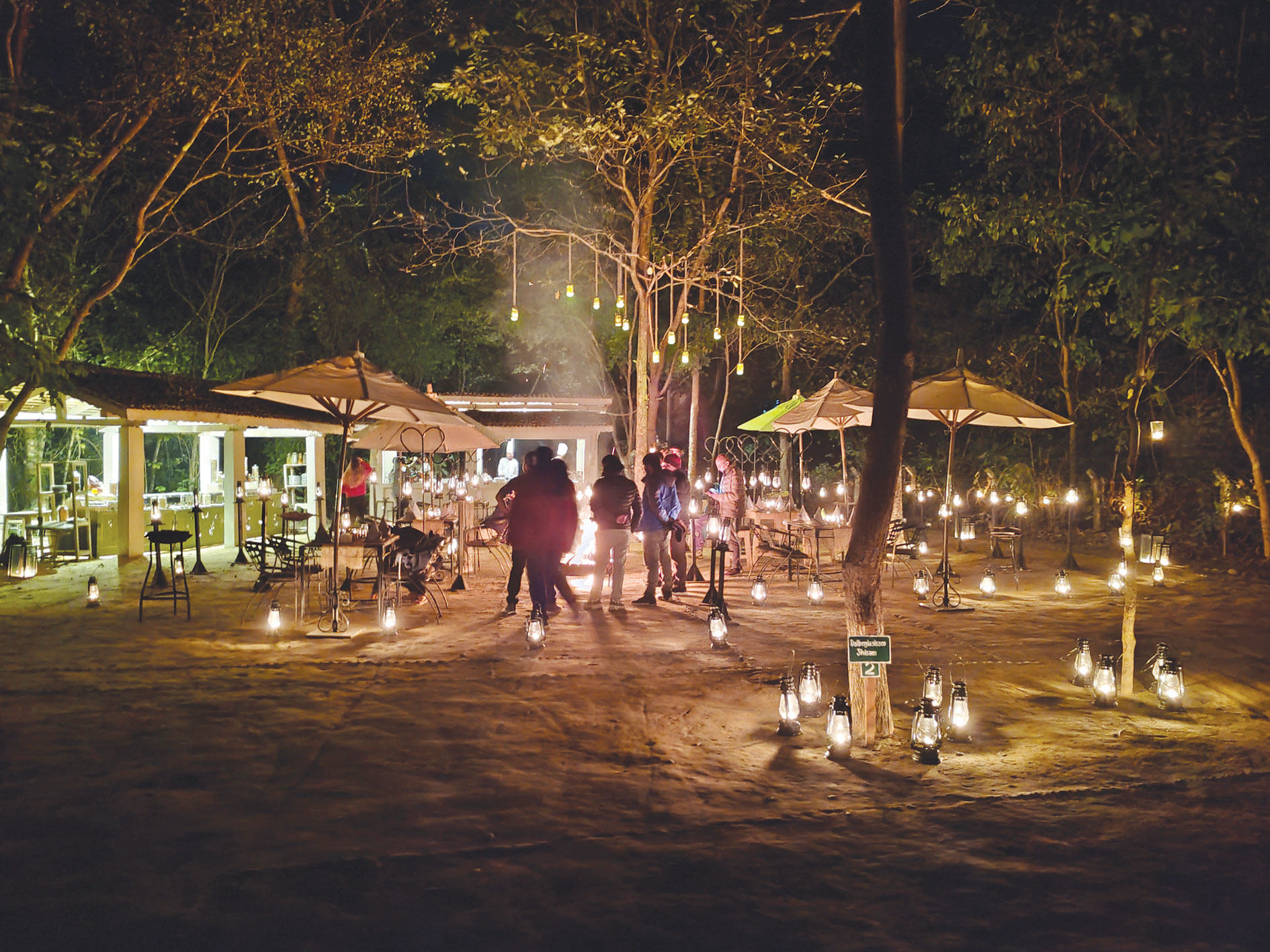
For naturalists and every nature lover, the CNP is a sacred place as it maintains a unique diversity in flora and fauna, and one can see at least deer, rhinos, elephants, wild boar, wild buffalo, various types of monkeys, crocodiles, peacocks, chakhewa, and many other birds during their jungle safari into it. Lucky ones can get a chance to see a leopard, a tiger, or even a bear. Our team spotted a leopard on a tree, and many of us could picture it as well. When you realise that you are having your breakfast at the place where there is a chance of encountering various animals or birds, you might get a chill. It can be termed as a 'picnic among the wild animals.' Food tastes better there as you might feel a kind of sensation responding to the exclusive adventure. But you are not allowed to leave any trash or food crumbles inside the jungle, nor can you bring a twig out of the CNP. I envied the army personnel who would get a chance to stay inside the park for a certain period as per the part of their duty.
Until 2012, tourists could stay in the resorts inside the CNP, but the government shut down those seven luxury resorts, blaming them for 'being in conflict with nature.' That move by the government resulted in the opening of many resorts and hotels along the buffer zone areas outside the CNP. Only a few high-end tourists have shown interest in staying outside the park. However, the resorts in the buffer zones have been trying to offer 'exotic' food, culture, and logistics products to attract them. Meghauli has also witnessed the establishment and operation of Meghauli Serai, Chital Lodge, Himalayan Paulownia Resort, Sarang Wildlife Sanctuary, and a couple of other hotels and resorts in the area in the last one and a half decades. It has become one of the major tourist hubs in Chitwan.
Meanwhile, Barahi unfolded new packages of surprises in the evening with the music and dances of the Tharu and Bote communities along with a campfire (during the winter) and dozens of lanterns at the banks of the Rapati River. The dinner was inside a grove that was decorated with hundreds of kerosene lanterns, giving a feeling that you were entering into the world of fireflies. One Indian tourist said that she never wanted to leave this place and spend the whole night there among the firefly-like lanterns. This experience takes you much beyond the much-touted candlelight dinner in the city restaurants or hotels.
The resort is inside a forest especially designed on the concepts of its founder, Hari Prasad Poudel. He said when he reached Meghauli for the first time about one and a half decades ago, the area was just a grassland with a couple of trees. When Barahi Group started building this property in 2012, they planted over 5,000 trees of various species across the 12 hectares of land and continued to add new plants and flowers to their magnificent collections. Now tourists can have a feeling of walking or driving inside a forest while being there. Even the rooms of the hotels are designed in a village-like setting, and no two doors could be approached from the same trail. The balcony of each room opens facing the national park and the Rapti River.
On top of all this experience, large flocks of herons and alligators—both crocodiles and gharials—create mesmerising scenes along the banks of the Rapti River. Tourists can silently move upstream or downstream in the river in a wooden boat to observe the alligators basking in the sun or skies painted with the birds.
Poudel had begun his journey as a tourist entrepreneur with the launching of Paradise Guest House in Pokhara in 1979. Now Barahi Group runs five hotels of various levels and is in the process of launching three large hotels. Three decades ago, Paradise used to charge about Rs. 75 to Rs. 100 for a room, but now a room costs more than US$ 170 (about Rs. 22,700). Poudel's sons Biplab and Baibhav are controlling the reins of the businesses under the group. The group runs Barahi Kathmandu in Thamel and is constructing a five-star hotel in Pame, Pokhara, while new projects are in the offing in Bhairahawa and Kagbeni, Mustang.
(Dhakal is a journalist at The Rising Nepal.)




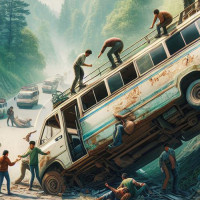
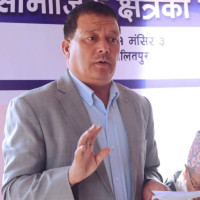
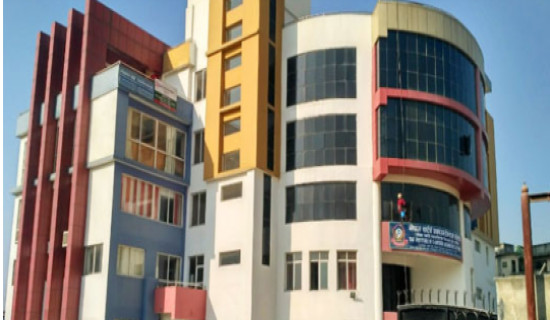
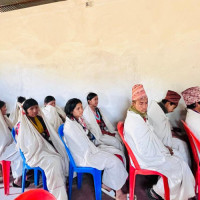




-original-thumb.jpg)



